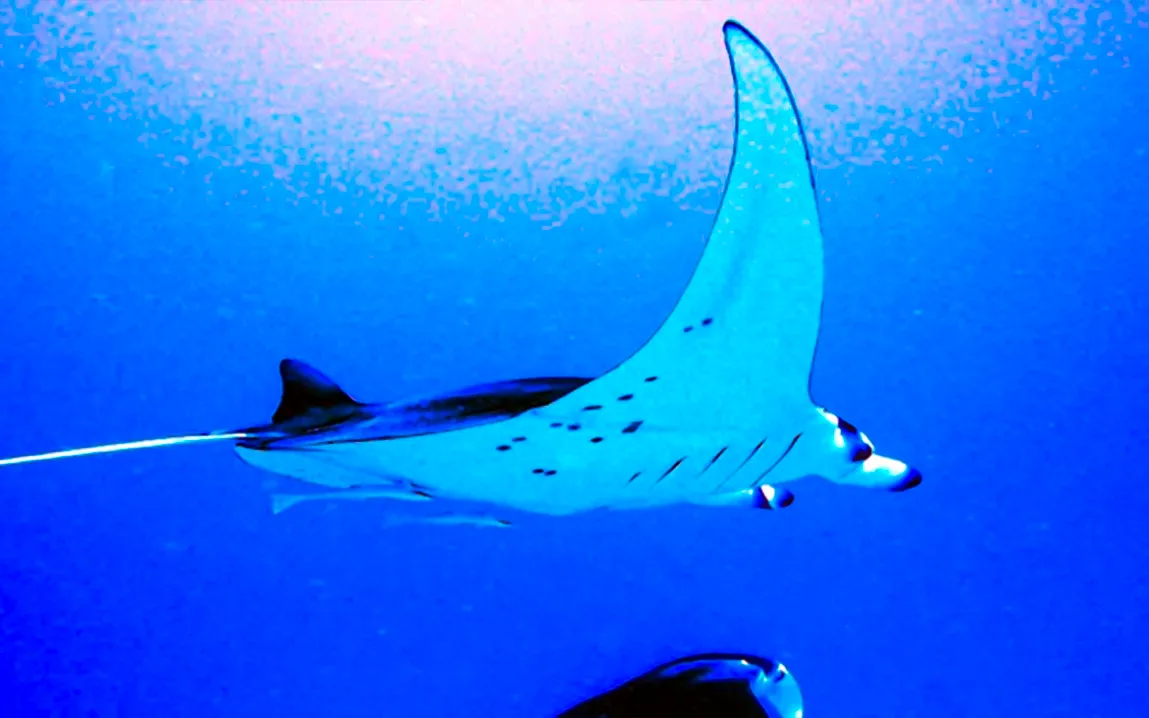A weird paradox has developed over the past couple of years regarding the fate of sharks and rays from the perspective of the climate crisis. The apex predators, though crucial to marine ecosystems, appear to have garnered some advantages with global warming while being under severe threats from increased levels of carbon dioxide (CO2) within the oceans. While it may seem counterintuitive, these creatures’ future hinges on a delicate balance between warming seas and ocean acidification, both of which influence their health and habitats in drastically different ways.
The Warming Ocean and Sharks and Rays’ Response
Sharks and rays are ancient creatures, with evolutionary roots dating back more than 400 million years. Throughout their long history, they have thrived in fluctuating ocean conditions, including warmer periods. Now, with the ocean temperatures rising because of climate change, these species are giving some positive signals. The warming waters boost certain species of sharks and rays, especially those of tropical and subtropical origin. With increased water temperatures, these species are expanding their ranges into previously inhospitable areas.
The warming trend has induced changes in the distribution of many prey species that sharks and rays rely on. In general, warmer oceans change the behaviors of fish and squid, which often move into new, more favorable areas. Such a shift opens up new opportunities for predators like sharks, who follow such prey migrations. In that sense, the rising temperatures seem to be on their side, as more food sources become available in new areas, a fact especially enhanced by rising temperatures of coastal and surface waters.
Apart from that, sharks and rays can also bear a huge gradient of ecological variables. The ability of warmer waters on their body functions gives them an advantage over species that are less able to cope with this change. These advantages, too, are not without their problems and are not evenly distributed throughout all the species of these groups.
Ocean Acidification: The Dark Side
While sharks and rays might be benefiting from increased temperatures in certain parts of the world, they also suffer under the increased CO2 levels within the oceans, a consequence of global warming. When CO2 dissolves into the seawater, it reacts with water to make carbonic acid, lowering the pH of the ocean, therefore causing what scientists refer to as “ocean acidification”.
Ocean acidification impairs many of the basic processes in marine life, but most concern with regard to sharks and rays has been raised. They require calcium carbonate for the development and sustainment of their skeletons and teeth. As oceans become more acidic, that’s reduced, making it more and more difficult for sharks and rays to grow and maintain structure. This may impact their survival, particularly for those species with more sensitive stages of development or whose populations are restricted to shallower waters where acidification is most pronounced.
Also, higher acidity may interfere with the sharks and rays’ ability to use the sensory systems used to detect electrical signals generated by prey. The literature indicates that hunting and orientation will be complicated activities for these animals in acidified waters. Meanwhile, the effect of acidification on growth, reproduction, and overall health for a long-term run is not known, but signs apparently show that this rising CO2 level is seriously threatening their health.
Rapid Environmental Changes: A Double-Edged Sword
The warming of the ocean is a complex reality facing sharks and rays. The change is happening with such rapidity that many species will not have sufficient time for adaptation. Even though the new, warmer waters open up some habitats, natural ability is simply outrun by the pace of environmental change.
Moreover, sharks and rays are also confronted with other human-induced changes in the oceans, such as overfishing and habitat destruction. Overfishing, particularly via bycatch, along with the degradation of coral reefs and coastal habitats, is pushing these apex predators to the brink. Added to these stresses are those induced by both warming waters and acidification, setting an ominous outlook for the future of these species.
These pressures can result in further loss of marine ecosystems’ biodiversity. Sharks and rays are important to marine ecosystems for the regulation of fish and other marine animal populations, keeping their numbers in a balance that will not upset the balance of the ecosystem. Should these top predators decline or be removed, then their effects would cascade through the entire food web, potentially leading to the collapse of ecosystems dependent upon them.
The Need for Immediate Action
In the face of sharks and rays facing an increasingly warm world, the conservation of these species should be more than protection. It’s about addressing higher ecosystem problems contributing to their decline. The rapid rise in ocean temperatures, the increasing acidity of seawater, and the continued overfishing of marine species all need urgent attention.
It’s not about saving individual species; it’s about protecting the ecosystem. Shark and ray populations reflect a healthy state of the marine environment. If we protect these predators, then we guarantee survival for many other marine species reliant on the same habitats.
Urgent measures should include a reduction of CO2 emissions to slow ocean acidification, the establishment of more marine protected areas, and stronger regulations against overfishing. Furthermore, such global cooperation is needed to manage marine resources in a way that will help minimize human effects on marine life.
Conclusion: A Fragile Future
While sharks and rays can tolerate warmer waters, their future is by no means secure. While they might benefit from global warming in the short term, the long-term impact of increased CO2 levels, along with other human-induced pressures, will threaten their survival. For the health of the oceans and the preservation of these magnificent creatures, the time to act is now. Without immediate efforts put into the care and protection of sharks, rays, and overall ecosystems they come from, the world may turn out to miss not only sharks as apex predators but also have the delicate marine life balance shifted.



